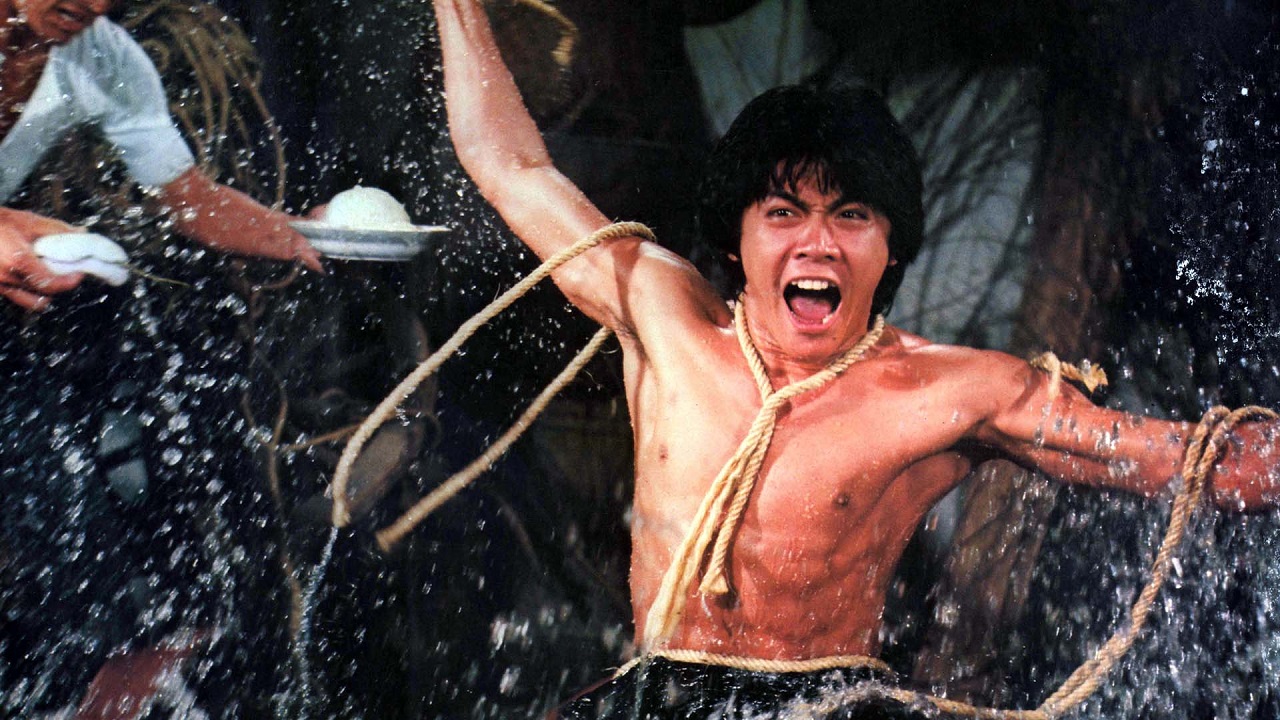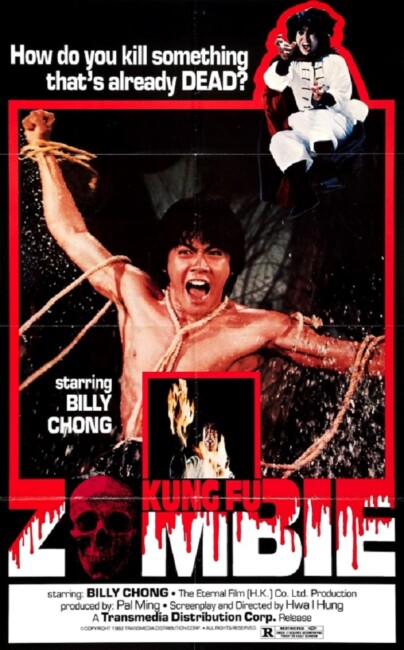(Wu Long Tian Shi Zhao Ji Gui)
Crew
Director/Screenplay – Hwa I Hung, Producer – Pal Ming, Photography – Yung Hu. Production Company – The Eternal Film Company
Cast
Billy Chong (Pang)
Plot
A sorcerer is using Mao Shin magic to try and raise the dead to aid a gang of criminals. Meanwhile, Pang is forced by his father to undergo a brutal training regimen to make him become a tougher martial artist. When an assassin arrives to kill his father, Pang is forced to fight him. However, after taking the reward money that Pang earns, his father dies of excess drinking. The sorcerer then raises a man from the dead but a mix-up causes his spirit to incarnate in Pang’s father’s body and become a zombie.
Hong Kong had always had a prolific output of swordplay films (Wu Xia). Martial arts became the in-fad following the worldwide success of Bruce Lee’s Enter the Dragon (1973). Throughout the 1970s, Wu Xia had gradually started to take on more fantastical moves and by the 1980s the majority of the entries produced in the genre were outright fantasy films, incorporating impossible moves with combatants flying through the air and fighting vampires, demons, sorcerers and the like.
There was also the growth from the mid-1970s onwards of a series of fantastical Hong Kong horror films with the likes of Black Magic (1975), The Boxer’s Omen (1983) and Seeding of a Ghost (1983). These too began to bleed into the martial arts film, resulting in hybrid efforts such as Encounters of the Spooky Kind (1980), Human Lanterns (1982), Kung Fu from Beyond the Grave (1982) and Dragon Against Vampire (1985). This in turn led into the hopping vampire fad of Mr Vampire (1985) and sequels and The Haunted Cop Shop (1987).
Most foreign films seen in the West during the 1970s and 80s were subject to terrible dubbing. Kung Fu Zombie is one example where excruciating and witless dubbing kills off what might have potentially been an okay film without it. Even so, what we get is 80 minutes of the frenetic and hysterically silly slapstick that is common to much Hong Kong comedy. There were some people that did this well – Jackie Chan’s Drunken Master films during this period, Stephen Chow from the 1990s onwards – but the downside of this was the hysteric buffoonery of the Mr Vampire sequels and their ilk.

Kung Fu Zombie offers up one of the worst examples. All the hysteric yelling by the characters in silly dubbed voices quickly starts to weary on the nerves – and at 80 minutes becomes painful to sit through. Not that the original humour in itself seems that sophisticated either – the film seems to think that the constant clonking of people or a scene where a hooker is groped are witty.
The other main complaint is that there is no real plot to Kung Fu Zombie. I usually pay careful attention to these things but I have to confess that I reached the end with not a clear idea why half the things were occurring. It just seems like a series of random things that keep happening amongst a bunch of characters and then a fight scene thrown in every so often. The plus side are some energetic and furiously paced martial arts sequences. As such, Billy Chong, who was quite a star in this field during this period, proves himself an accomplished fighter. On the other hand, the fight scenes are also repetitive and unimaginatively staged. Compared to the poetry that you would see in the Shaw Brothers films of the era and the total dementia of the moves in the Wu Xia genre, here all we get are scene after scene of Billy Chong exchanging fast-paced hand and sometimes feet blows with opponents.
The film at least surmounts itself for an entertainingly absurd climax involving Billy Chong taking on the magician and various undead, involving battles with prayers slapped onto foreheads, a tug of war that ends up throwing the disembodied souls back into their rightful bodies, Chong fighting a vampire that has flaming feet and legs, and an attack move that involves spinning and cartwheeling at high speed. The other weirdness is a score that frequently repeats the opening motif from the James Bond films.


